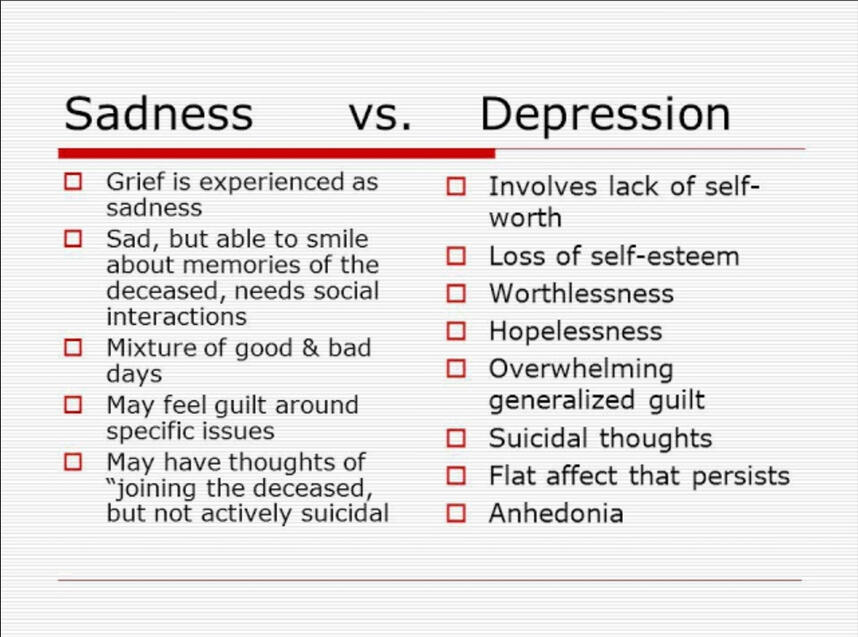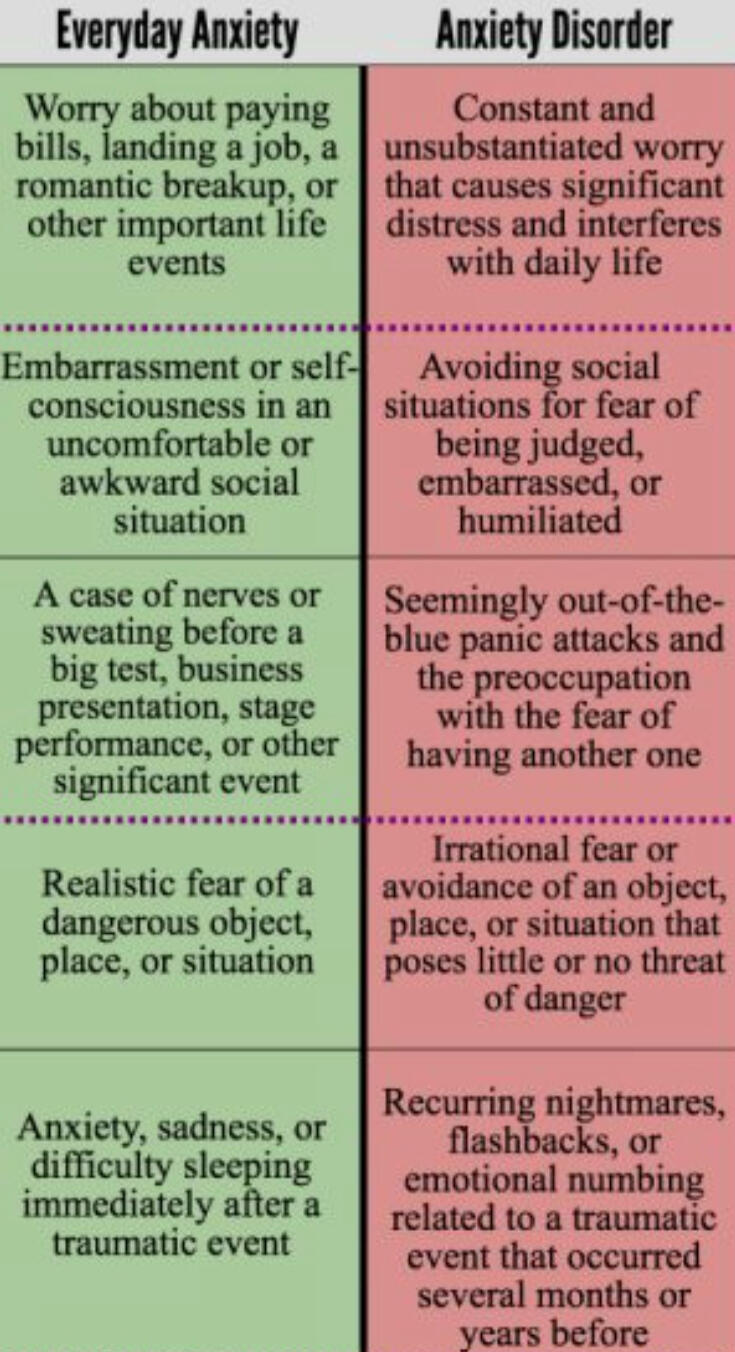
Educate yourself on the types of mental disorders or analyse your symptoms!!! thank you ♡

Depression (major depressive disorder) is a common and serious medical illness that negatively affects how you feel, the way you think and how you act. Fortunately, it is also treatable. Depression causes feelings of sadness and/or a loss of interest in activities once enjoyed. It can lead to a variety of emotional and physical problems and can decrease a person’s ability to function at work and at home. I did a lot of research. I've read about some common types of depression. Maybe there might be more but these are the ones I researched about.
▪︎ Major depressive disorder referred to as clinical depression
▪︎ Persistent depressive disorder also known as dysthymia
▪︎ Bipolar disorder also known as manic depression
▪︎ Postpartum depression also known as peripartum depression
▪︎ Premenstrual dysphoric disorder
▪︎ Atypical depression
▪︎ Seasonal affective disorder
▪︎ Situational depression also known as reactive depression or adjustment disorder
▪︎ Psycotic depression
▪︎ Disruptive mood dysregulation disorder
So I'm gonna list the symptoms for each one because that might be useful for you.
▪︎ Major depressive disorder [MDD]
Depressed moodLack of interest in activities normally enjoyedChanges in weightChanges in sleepFatigueFeelings of worthlessness and guiltDifficulty concentratingThoughts of death and suicide
▪︎ Persistent depressive disorder
Feelings of sadnessLoss of interest and pleasure-Anger and irritability
Feelings of guiltLow self-esteemDifficulty falling or staying asleepSleeping too muchFeelings of hopelessnessFatigue and lack of energyChanges in appetiteTrouble concentrating
▪︎ Bipolar disorder
Fatigue, insomnia, and lethargyUnexplained aches, pains, and psychomotor agitationHopelessness and loss of self-esteemIrritability and anxietyIndecision and disorganization
▪︎ Postpartum depression [happens during pregnancy]
Low mood, feelings of sadnessSevere mood swingsSocial withdrawalTrouble bonding with your babyAppetite changesFeeling helpless and hopelessLoss of interest in things you used to enjoyFeeling inadequate or worthlessAnxiety and panic attacksThoughts of hurting yourself or your babyThoughts of suicide
▪︎ Premenstrual dysphoric disorder [PMDD]
Extreme fatigueFeeling sad, hopeless, or self-criticalSevere feelings of stress or anxietyMood swings, often with bouts of cryingIrritabilityInability to concentrateFood cravings or binging
▪︎ Atypical depression
Excessive eating or weight gainExcessive sleepFatigue, weakness, and feeling "weighed - down"Intense sensitivity to rejectionStrongly reactive moods
▪︎ Seasonal affective disorder
social withdrawalincreased need for sleepweight gaindaily feelings of sadness, hopelessness, or unworthiness
▪︎ Situational depression
the death of a loved onea serious illness or other life-threatening eventgoing through divorce or child custody issuesbeing in emotionally or physically abusive relationshipsbeing unemployed or facing serious financial difficultiesfacing extensive legal troubles
▪︎ Psychotic depression
Hallucinations (seeing or hearing things that arent there)Delusions (false beliefs)Paranoia (wrongly believing that others are trying to harm you)
▪︎ Disruptive mood dysregulation disorder [DMDD]
Severe temper outbursts at least three times a weekSad, irritable, or angry mood almost every dayReaction is bigger than expectedChild must be at least six years oldSymptoms begin before age tenSymptoms are present for at least a yearChild has trouble functioning in more than one place (e.g., home, school, and/or with friends)
know the difference!

thank you for educating yourself ♡

Everyone in this world is constantly anxious in their life, but sometimes that can lead to a problematic mental disorder. Anxiety can really affect us pensively and it's a mental illness, anxiety disorder is a mental health disorder characterised by feelings of worry, anxiety or fear that are strong enough to interfere with one's daily activities. It's usually self diagnosable. Here are the different types of anxiety disorders,
▪︎ Generalized anxiety disorder [GAD] : Generalized Anxiety Disorder, GAD, is an anxiety disorder characterized by chronic anxiety, exaggerated worry and tension, even when there is little or nothing to provoke it.
Symptoms:
Persistent worrying or anxiety about a number of areas that are out of proportion to the impact of the eventsOverthinking plans and solutions to all possible worst-case outcomesPerceiving situations and events as threatening, even when they aren'tDifficulty handling uncertaintyIndecisiveness and fear of making the wrong decisionInability to set aside or let go of a worryInability to relax, feeling restless, and feeling keyed up or on edgeDifficulty concentrating, or the feeling that your mind "goes blank"Trouble sleepingFeel overly anxious to fit inBe a perfectionistRedo tasks because they aren't perfect the first timeSpend excessive time doing homeworkLack confidenceStrive for approvalRequire a lot of reassurance about performanceHave frequent stomachaches or other physical complaints
▪︎ Obsessive compulsive disorder [OCD] : Obsessive-Compulsive Disorder, OCD, is an anxiety disorder and is characterized by recurrent, unwanted thoughts (obsessions) and/or repetitive behaviors (compulsions). Repetitive behaviors such as hand washing, counting, checking, or cleaning are often performed with the hope of preventing obsessive thoughts or making them go away. Performing these so-called "rituals," however, provides only temporary relief, and not performing them markedly increases anxiety.
Symptoms:
Has repetitive thoughts, images, or urges that they do not feel able to controlis aware of these intrusive thoughts and feelings and does not want to have these ideasfinds these thoughts disturbing, unwanted, and, in the case of older children and adults, is aware that they do not make sensehas uncomfortable feelings, such as fear, disgust, doubt, or a feeling that things have to be done in a way that is "just right"spends an unwarranted amount of time on these obsessions, which interferes with personal, social, and professional activitieswashing and cleaning, including constant hand-washing
checking, including checking body parts or checking that nothing terrible happenedrepeating, including rereading and repeating routine activities like getting up from a chair.mental compulsions, including praying to prevent harm and mentally reviewing events
▪︎ Panic disorder: Panic disorder is an anxiety disorder and is characterized by unexpected and repeated episodes of intense fear accompanied by physical symptoms that may include chest pain, heart palpitations, shortness of breath, dizziness, or abdominal distress.
Symptoms:
Racing heartbeat or palpitationsshortness of breathfeeling like you are chokingdizziness (vertigo)lightheadednessnauseasweating or chillsshaking or tremblingchanges in mental state, including a feeling of derealization (feelings of unreality) or depersonalization (being detached from oneself)numbness or tingling in your hands or feetchest pain or tightnessfear that you might die
▪︎ Post traumatic stress disorder [PTSD]: Post-Traumatic Stress Disorder, PTSD, is an anxiety disorder that can develop after exposure to a terrifying event or ordeal in which grave physical harm occurred or was threatened. Traumatic events that may trigger PTSD include violent personal assaults, natural or human-caused disasters, accidents, or military combat.
Symptoms:
Inability to remember an important aspect of the traumatic events (not due to head injury, alcohol, or drugs)persistent and exaggerated negative beliefs or expectations about oneself, others, or the world (e.g., “I am bad,” “No one can be trusted,” "The world is completely dangerous").persistent, distorted blame of self or others about the cause or consequences of the traumatic eventspersistent fear, horror, anger, guilt, or shamemarkedly diminished interest or participation in significant activitiesfeelings of detachment or estrangement from otherspersistent inability to experience positive emotionsirritable or aggressive behaviorreckless or self-destructive behaviorhypervigilanceexaggerated startle responseproblems with concentrationdifficulty falling or staying asleep or restless sleep
▪︎ Social phobia [or social anxiety disorder]: Social Phobia, or Social Anxiety Disorder, is an anxiety disorder characterized by overwhelming anxiety and excessive self-consciousness in everyday social situations. Social phobia can be limited to only one type of situation - such as a fear of speaking in formal or informal situations, or eating or drinking in front of others - or, in its most severe form, may be so broad that a person experiences symptoms almost anytime they are around other people.
Symptoms:
Fear of situations in which you may be judgedWorrying about embarrassing or humiliating yourselfIntense fear of interacting or talking with strangersFear that others will notice that you look anxiousFear of physical symptoms that may cause you embarrassment, such as blushing, sweating, trembling or having a shaky voiceAvoiding doing things or speaking to people out of fear of embarrassmentAvoiding situations where you might be the center of attentionHaving anxiety in anticipation of a feared activity or eventEnduring a social situation with intense fear or anxietySpending time after a social situation analyzing your performance and identifying flaws in your interactionsExpecting the worst possible consequences from a negative experience during a social situation
Personally for me, phobias are the reason that I experience really bad anxiety. So phobias can be the cause of your anxiety. If you experience it you should see a doctor if it is affecting your day to day life a lot and making you depressed, it can lead to suicidal thoughts too so before it reaches that point, it's important to get professional help.
know the difference!

Thank you for educating yourself ♡

Personality disorders
---------------
• Paranoid personality disorder
------------
Pervasive distrust and suspicion of others and their motivesUnjustified belief that others are trying to harm or deceive youUnjustified suspicion of the loyalty or trustworthiness of othersHesitancy to confide in others due to unreasonable fear that others will use the information against youPerception of innocent remarks or non threatening situations as personal insults or attacksAngry or hostile reaction to perceived slights or insultsTendency to hold grudgesUnjustified, recurrent suspicion that spouse or sexual partner is unfaithful
----------------
• Schizoid personality disorder
-----------------
Lack of interest in social or personal relationships, preferring to be aloneLimited range of emotional expressionInability to take pleasure in most activitiesInability to pick up normal social cuesAppearance of being cold or indifferent to othersLittle or no interest in having sex with another person
---------------------------
Schizotypal personality disorder
---------------------------
Peculiar dress, thinking, beliefs, speech or behaviorOdd perceptual experiences, such as hearing a voice whisper your nameFlat emotions or inappropriate emotional responsesSocial anxiety and a lack of or discomfort with close relationshipsIndifferent, inappropriate or suspicious response to others"Magical thinking" — believing you can influence people and events with your thoughtsBelief that certain casual incidents or events have hidden messages meant only for you
---------------------------
• Antisocial personality disorder
---------------------------
Disregard for others' needs or feelingsPersistent lying, stealing, using aliases, conning othersRecurring problems with the lawRepeated violation of the rights of othersAggressive, often violent behaviorDisregard for the safety of self or othersImpulsive behaviorConsistently irresponsibleLack of remorse for behavior
---------------------------
• Borderline personality disorder
---------------------------
Impulsive and risky behavior, such as having unsafe sex, gambling or binge eatingUnstable or fragile self-imageUnstable and intense relationshipsUp and down moods, often as a reaction to interpersonal stressSuicidal behavior or threats of self-injuryIntense fear of being alone or abandonedOngoing feelings of emptinessFrequent, intense displays of angerStress-related paranoia that comes and goes
---------------------------
• Histrionic personality disorder
---------------------------
Constantly seeking attentionExcessively emotional, dramatic or sexually provocative to gain attentionSpeaks dramatically with strong opinions, but few facts or details to back them upEasily influenced by othersShallow, rapidly changing emotionsExcessive concern with physical appearanceThinks relationships with others are closer than they really are
---------------------------
• Narcissistic personality disorder
---------------------------
Belief that you're special and more important than othersFantasies about power, success and attractivenessFailure to recognize others' needs and feelingsExaggeration of achievements or talentsExpectations of constant praise and admirationArroganceUnreasonable expectations of favors and advantages, often taking advantage of othersEnvy of others or belief that others envy you
thank you for educating yourself ♡

Eating disorders
Eating disorders are a range of psychological conditions that cause unhealthy eating habits to develop. They might start with an obsession with food, body weight, or body shape. There are some common types of eating disorders with symptoms,
------------------------
Anorexia nervosa is likely the most well-known eating disorder. Symptoms,
▪︎ being considerably underweight compared with people of similar age and height
▪︎ very restricted eating patterns
▪︎ an intense fear of gaining weight or persistent behaviors to avoid gaining weight, despite being underweight
▪︎ a relentless pursuit of thinness and unwillingness to maintain a healthy weight
▪︎ a heavy influence of body weight or perceived body shape on self-esteem
▪︎ a distorted body image, including denial of being seriously underweight
------------------------
• Bulimia nervosa is another well-known eating disorder.
▪︎ recurrent episodes of binge eating with a feeling of lack of control
▪︎ recurrent episodes of inappropriate purging behaviors to prevent weight gain
▪︎ a self-esteem overly influenced by body shape and weight
▪︎ a fear of gaining weight, despite having a normal weight
-----------------------
• Binge eating disorder is believed to be one of the most common eating disorders, especially in the United States.
▪︎ eating large amounts of food rapidly, in secret and until uncomfortably full, despite not feeling hungry
▪︎ feeling a lack of control during episodes of binge eating
▪︎ feelings of distress, such as shame, disgust, or guilt, when thinking about the binge eating behavior
▪︎ no use of purging behaviors, such as calorie restriction, vomiting, excessive exercise, or laxative or diuretic use, to compensate for the binging
------------------------
• Pica is another eating disorder that involves eating things that are not considered food. Individuals with pica crave non-food substances, such as ice, dirt, soil, chalk, soap, paper, hair, cloth, wool, pebbles, laundry detergent, or cornstarch.
-------------------------
• Rumination disorder is another newly recognized eating disorder. It describes a condition in which a person regurgitates food they have previously chewed and swallowed, re-chews it, and then either re-swallows it or spits it out
--------------------------
• Avoidant/restrictive food intake disorder (ARFID) is a new name for an old disorder
▪︎ avoidance or restriction of food intake that prevents the person from eating sufficient calories or nutrients
▪︎ eating habits that interfere with normal social functions, such as eating with others
▪︎ weight loss or poor development for age and height
▪︎ nutrient deficiencies or dependence on supplements or tube feeding
Thank you for educating yourself ♡

There are three main groups of phobias which include:
1) Specific (simple) phobias, which are the most common and focus on specific objects
2) Social phobia, which causes extreme anxiety in social or public situations, and
3) Agoraphobia, which is the fear of being alone in public places from which there is no easy escape.
• Specific Or Simple Phobias produce intense fear of a particular object or situation that is, in fact, relatively safe. People who suffer from specific phobias are aware that their fear is irrational, but the thought of facing the object or situation often brings on a panic attack or severe anxiety.
• Specific phobias may include persistent fear of dogs, insects, or snakes; driving a car; heights; tunnels or bridges; thunderstorms; and/or flying. No one knows what causes them, though they seem to run in families and are slightly more prevelant in women. Specific phobias usually begin in adolescence or adulthood. They start suddenly and tend to be more persistent than childhood phobias. When children have specific phobias--for example, a fear of animals--those fears usually disappear over time, though they may continue into adulthood. No one knows why they persist in some people and disappear in others.
• Social Phobia can produce fear of being humiliated or embarrassed in front of other people. This problem may also be related to feelings of inferiority and low self-esteem, and can drive a person to drop out of school, avoid making friends, and remain unemployed.
• Agoraphobia causes people to suffer anxiety about being in places or situations from which it might be difficult or embarrassing to escape--such as being in a room full of people or in an elevator. In some cases, panic attacks can become so debilitating that the person may develop agoraphobia because they fear another panic attack. In extreme cases, a person with agoraphobia may be afraid to leave their house.
Although this disorder is sometimes thought to be shyness, it is not the same thing. Shy people do not experience extreme anxiety in social situations, nor do they necessarily avoid them. In contrast, people with social phobia can be at ease with people most of the time, except in particular situations. Often social phobia is accompanied by depression or substance abuse.
People suffering from social phobia may:
• view small mistakes as more exaggerated than they really are
• find blushing as painfully embarrassing
• feel that all eyes are on them
• fear speaking in public, dating, or talking with persons in authority
• fear using public restrooms or eating out
• fear talking on the phone or writing in front of others
thank you for educating yourself ♡

Some other mental illnesses:
----------------
Impulse control disorder
Do you have trouble controlling an emotion or behavior, do you have trouble resisting an urge or an impulse, this is a symptom of impulse control disorder. Some more symptoms of it,
(1) repetitive engagement in a behavior despite adverse consequences
(2) diminished control over the problematic behavior
(3) an appetitive urge or craving state prior to engagement in the problematic behavior
(4) a hedonic quality experienced during the performance of the problematic behavior.
Types of impulse control disorders are,
▪︎ Pathological gambling
▪︎ Kleptomania [urge to steal]
▪︎ Internet addiction
▪︎ Compulsive shopping
▪︎ Compulsive sexuality
--------------------
▪︎ Trichotillomania, The urges involve pulling out hair from the scalp, eyebrows and other areas of the body.
------------------
▪︎ Intermittent explosive disorder, clinical condition of experiencing recurrent aggressive episodes that are out of proportion of any given stressor.
---------------------
Schizophrenia
Schizophrenia is a chronic, severe, debilitating mental illness characterized by disordered thoughts, abnormal behaviors, and antisocial behaviors. It is a psychotic disorder, meaning the person with schizophrenia does not identify with reality at times.
Types of schizophrenia,
• Paranoid schizophrenia
• Disorganized schizophrenia
• Catatonic schizophrenia
• Undifferentiated schizophrenia
• Residual schizophrenia
thank you for educating yourself ♡